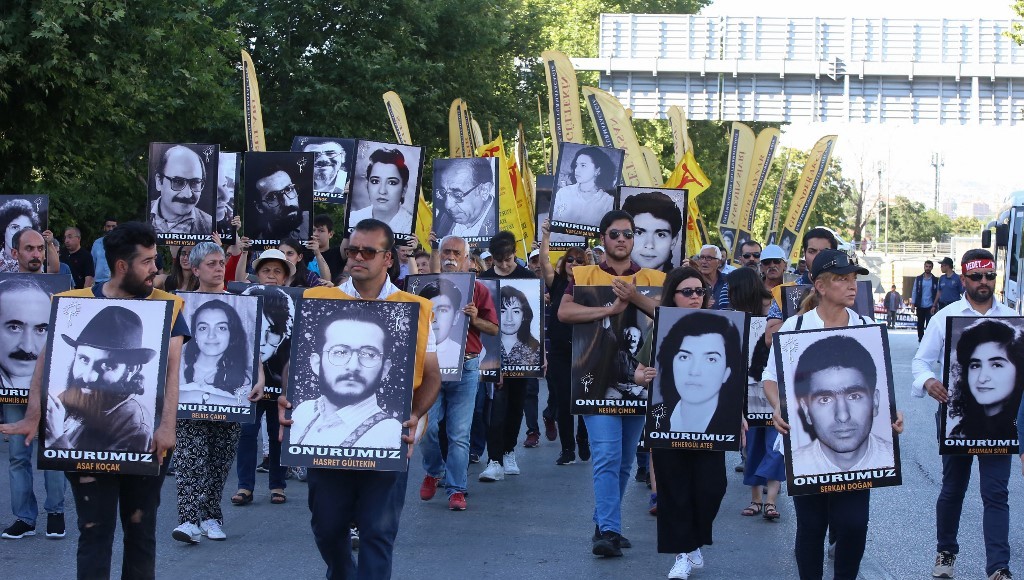A Turkish court, citing the expiration of the statute of limitations, ruled on Thursday to drop the legal proceedings against three defendants who were being tried in absentia for their alleged role in the massacre of 35 people in a deadly arson in central Turkey in 1993, the BBC Turkish service reported.
The defendants, Murat Sonkur, Eren Ceylan and Murat Karataş, are currently living in Germany. Their trial had been separated from the main trial, which was dismissed in 2014 due to the statute of limitations.
The decision was made by the Ankara 1st High Criminal Court, which caused disappointment and anger among the families of the victims as well as the country’s Alevi community. The court made its decision in line with an opinion presented by the prosecutor who said the trial should be dropped due to the expiration of the 30-year statute of limitations.
On July 2, 1993 an angry mob torched the Madımak Hotel in Sivas, killing 35 people, mostly members of the Alevi sect, after a group of people gathered in front of the hotel following Friday prayer to protest left-wing Turkish intellectual Aziz Nesin, who was hated by religious Sunnis in Turkey as he had attempted to publish Salman Rushdie‘s controversial novel “The Satanic Verses.”
Thirty-three attendees, two hotel staff members and two protesters died in the fire. Nesin was able to escape because the attackers initially failed to recognize him.
The court’s decision led to outrage among the victims’ families, who accused the judges of protecting the murderers. They were taken out of the courtroom after they booed the court in protest.
The trial was also being followed by some opposition party lawmakers and journalists.
Lawyers for the victims’ families who spoke to BBC Turkish said the statute of limitations cannot apply when a crime against humanity is in question. However, the massacre has not been designated as a crime against humanity by the Turkish courts. They said the three defendants are in Germany and that their addresses are known to the authorities but that the German government has thus far refused to extradite them to Turkey.
The Madımak Hotel attack has been described as one of the darkest days in Turkish history. The hotel was hosting an Alevi cultural festival, and the attackers targeted the attendees, many of whom were prominent intellectuals and artists.
Only 190 of the attackers were detained at the time among the thousands of protestors who had gathered around the Madımak Hotel, of whom 124 were indicted. There are conflicting reports about the number of people who were convicted in the trial as there had been several retrials. In 2000 there were 47 people in prison who were convicted in the trial, 33 of whom were given life sentences.
Over the years the number of people in prison has decreased with the release of some of them for various reasons.
In a controversial move, President Recep Tayyip Erdoğan recently used his constitutional power to commute the sentence of 78-year-old Hayrettin Gül, who was serving an aggravated life sentence for his role in the massacre. The decision was based on medical reports citing chronic illness.
This marked the second such commutation granted by Erdoğan in connection with the massacre. In 2020, he also commuted the sentence of Ahmet Turan Kılıç, then 86, who had also received an aggravated life sentence, on similar health grounds.
While the Turkish Constitution allows the president to remit or commute sentences for reasons of chronic illness, disability, or old age, the use of this authority in such high-profile and sensitive cases has drawn public backlash. Human rights groups have called it an example of selective justice and impunity.
A number of lawyers who defended the suspects in the massacre later became politicians in Erdoğan’s ruling party.



